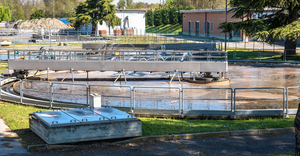Seller of salvaged metals can't hide past dealings.
February 1, 2010
As investment promoters are supposed to say, “Past performance is no guarantee of future results.” But a track record of trading in valuable commodities turned out to be the undoing of an accused thief.
Louis Grafton and Randall Ford share property on which they separately oversee several businesses. Grafton runs an auto repair shop, while Ford customizes and restores automobiles and also operates a towing service. Surveillance cameras captured Jerry Nelson parking his vehicle on their property after business hours. Ford later recognized and identified Nelson on the videotape.
While parked on the lot, Nelson phoned Devin Morehouse, asking him to bring a tire to replace a flat on Nelson's vehicle. The video showed the two men collecting items from around the yard and placing them in Nelson's vehicle.
Nelson was charged with theft and criminal trespass. At his trial, Nelson defended himself by arguing that he believed the property he took was “junk lying around.” The prosecutor offered rebuttal evidence that Nelson had previously sold salvaged metal and therefore he knew that what he took from Grafton and Ford had value. The evidence consisted of testimony from Peggy Cartmill, who owns a non-ferrous metals recycling business. Referring to handwritten notes, she said she paid Nelson more than $44,000 over the course of 57 purchases of recyclable metals. A jury convicted Nelson on all charges.
On appeal, Nelson argued that the trial judge wrongfully allowed the state to present evidence of the previous sales and that the prosecutor's comments on the sales during closing argument were prejudicial. An Alaska appeals court affirmed the conviction, concluding that the judge had the discretion to admit testimony from Cartmill and that the prosecutor's comments were not improper.
Evidence is “relevant” if it tends to prove a key fact, but not all relevant evidence is admissible. As a general rule, state and federal judges may exclude relevant evidence if its probative value is outweighed by risks ranging from emotional appeal or confusion of the issues at one extreme to merely wasting time at the other.
Under Alaska law, evidence of prior acts may be introduced to show motive, opportunity, intent, knowledge, or absence of mistake or accident. At trial, the prosecutor argued that evidence of Nelson's prior metal sales showed (a) he knew the metal had value, which gave him (b) a motive for taking it, and (c) his actions were not inadvertent. In short, Nelson was not clueless.
“[Trial] Judge Collins determined that Nelson's ‘knowledge of value, through frequent transactions by Mr. Nelson … [was] more probative than unfairly prejudicial,’ but the judge prohibited the State from suggesting that Nelson had stolen the metals he previously sold to the recycling shop,” the appeals court said. “The evidence … was limited to Cartmill's discussion of her business transactions with Nelson, and Judge Collins explicitly warned the witness not to talk about any previous police contacts she might have had relating to Nelson.”
The prosecutor probably overreached in his closing argument when he insinuated that Nelson's sales to Cartmill involved stolen items. However, the appellate panel, after reviewing the transcript and listening to an audio recording, opted for a benign interpretation of the prosecutor's remarks.
[Nelson v. State, No. A-10138, Alaska Ct. App., Dec. 9, 2009]
Related Stories
Barry Shanoff is a Rockville, Md., attorney and general counsel of the Solid Waste Association of North America.
The legal editor welcomes comments from readers. Contact Barry Shanoff via e-mail: [email protected].
About the Author(s)
You May Also Like




